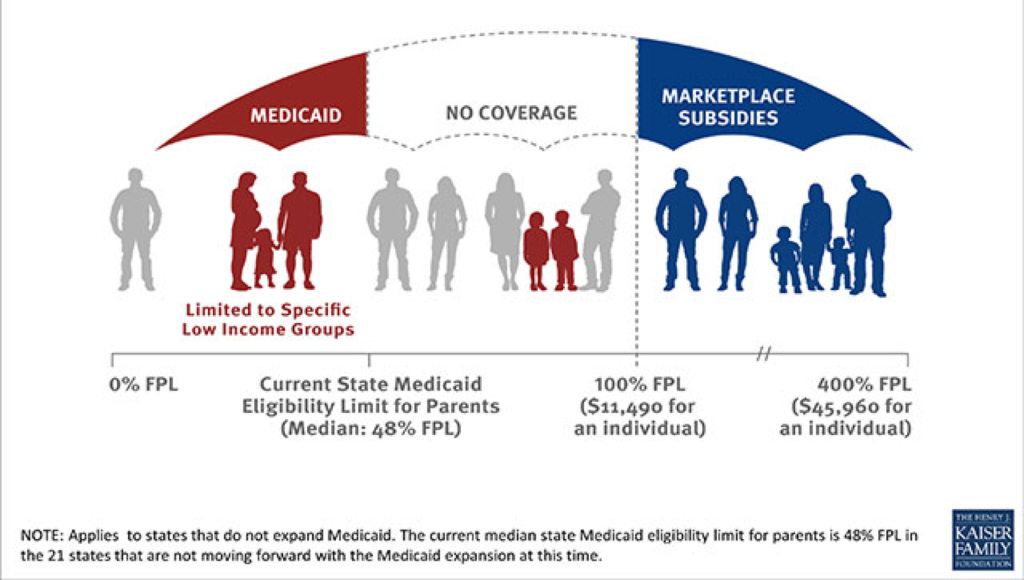Health Care That Leaves No One Behind
The purpose of the Affordable Care Act (ACA) was to provide all Americans with affordable health insurance. Two key pieces of the law are the availability of subsidies to assist individuals with paying premiums and the expansion of Medicaid coverage to people earning less than 138% of the federal poverty level (FPL). Together, these requirements ensure access to health care for people who can’t otherwise afford insurance.

However, in 2012 the Supreme Court ruled that each state could decide whether or not to expand Medicaid. This ruling created a health care coverage gap in states like NC that chose not to expand Medicaid. The coverage gap includes people who aren’t eligible for Medicaid yet their incomes are too low to qualify for ACA subsidies.
Most people who fall within the gap are working—more than 60% of them. But they don’t get health care benefits from their employers or cannot afford to purchase insurance on their own. These hardworking North Carolinians are self-employed or work in industries such as retail, construction, food service and child care. For example, adults who earn between $737 a month and $1,674 a month for a family of three are in the gap and are currently left out of both Medicaid and ACA subsidies.
Why Is It So Important To Close The Coverage Gap?
Many reasons:
- There are 43,000 new jobs riding on Medicaid expansion. This influx of money would help power North Carolina’s statewide economic recovery.
- Closing the gap would benefit 500,000 people. This is a huge group who can’t, and shouldn’t, be ignored any longer. To put it into perspective:
- The population that falls into the gap is the size of the city of Raleigh or of Winston-Salem and Greensboro combined.
- They would fill the Bank of America Stadium in Charlotte eight times over, equaling the entire Carolina Panthers’ home schedule.
- Billions of dollars are at stake. So far, our leaders’ failure to act has cost North Carolina billions, but it’s not too late. If we act soon, we could be on track to gain $20 billion in business activity and $1 billion in new tax revenue for the state by 2020.
- We are already paying for the health care of people in the gap. While most of our elected officials in state administration and the General Assembly continue to oppose Medicaid expansion, ignoring the enormous need for and the significant statewide benefits of it, insured North Carolinians are forced to pick up the tab through higher premiums and soaring health costs.
How does it affect you?
The economic impacts of Medicaid expansion—or the failure to implement it—are far-reaching, from the mountains to the coast. Check out this interactive map based on a George Washington University study that shows what expansion could mean to our state and your county.
